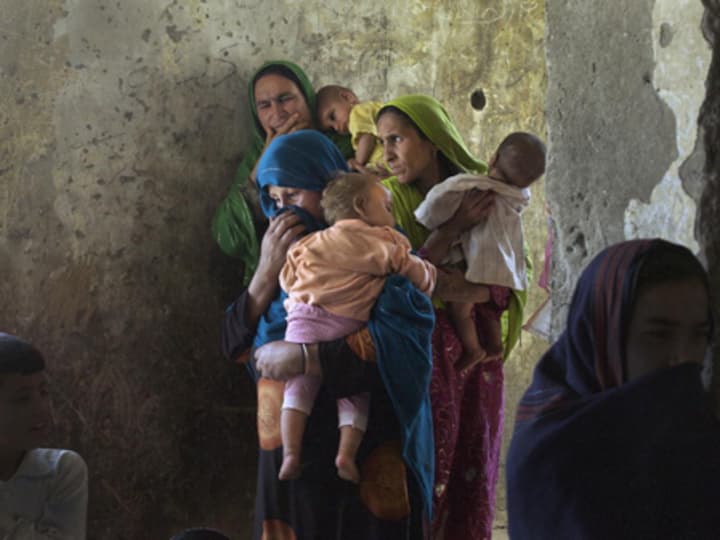
The U.S. Special Inspector General for Afghan Reconstruction is not sure the country’s ministries are ready to receive direct U.S. government funding.
But Dr Suraya Dalil, Afghanistan’s public health minister, says SIGAR should recognize their progress and be more open to the idea, after the watchdog released a report claiming alleged “risk of waste, fraud, and abuse” of funds for its public health programs in the country.
“SIGAR should have been more open to what has been accomplished in Afghanistan,” Dalil said during an exclusive interview with Devex. “[They have] referred to, according to them, some gaps and obstacles and issues, but they never referred to the achievements that we have all done together in the last decade, and that’s why I found this report incomplete.”
Here are some highlights from our conversation with the Afghan health minister:
You’re here in the United States at a time when our country’s engagement in yours is meant to be winding down. Are you here to ensure U.S. support for the Afghan health ministry continues after the U.S. drawdown?
The health sector is one area where we have demonstrated results. It’s an area that we have seen tremendous progress in the last decade. Life expectancy in Afghanistan has increased from 46 to 62 years in one decade. Maternal mortality has come down from 600 in 100,000 live births to 327 in 100,000 live births. A decade ago, every 27 minutes a woman used to die in Afghanistan from pregnancy and child birth, and today it’s every two hours. We have also seen a reduction in child mortality … A decade ago from every four children born in Afghanistan, one was dying before their fifth birthday. Today, in every 10 newborns … only one is dying before the age of five.
So this is the progress we have made … With support from USAID, The World Bank and the European Union, … this was a journey that we have traveled together.
Yes, I want the assistance to continue, because this is an area where we touch people’s minds and hearts, where we have accessed millions of people in Afghanistan. As an Afghan, I want to be gradually self-dependent and I want to be empowered to be self-dependent.
We have developed a Health Care Financing Strategy, … which will take a few years to implement … For all the elements to be working [it] has outlined financing options for health care, including public-private partnerships, [and] taxation, like the introduction of corrective taxation and the introduction of health insurance. However, those are issues that require some prerequisites … [to be] fully functional. Until then, the country needs assistance, financial assistance and technical assistance, from the outside world.
Have U.S. government agencies like USAID made any firm commitments to your ministry?
They have a commitment for another year, but in general — this was not here in Washington but a few months [ago] in Kabul — they said they are interested and committed to support health and education. These are two sectors that are important. They are confident that they provide results and their investment is on track for them, but that was a general commitment that we had received in Kabul.
We’re occasionally presented with reports from SIGAR that raise doubts about the readiness of Afghan ministries to receive U.S. government funding. What would you say to U.S. oversight agencies and taxpayers who are concerned they may not be able to be in Afghanistan to see how the money gets spent?
SIGAR should have been more open to what has been accomplished in Afghanistan. SIGAR has referred to, according to them, some gaps and obstacles and issues, but they never referred to the achievements that we have all done together in the last decade, and that’s why I found this report incomplete. I found it not enough and not appropriate. The report didn’t … mention the progress we have made together, and that’s the Afghanistan government with the international community.
I want to clarify that USAID assistance is not government-to-government support. In Afghanistan, it’s a host-country contract. We have a unit that’s called a Grand Coordination Management Unit that’s been certified by The World Bank, that’s been certified by USAID, and they manage the contracts and the grants. The report should have referred to the achievements that we did together, for which the Americans’ money has been spent. The report is quiet on that, which is not fair to the American citizens who pay taxes and contribute to that progress.
I’m struck by how difficult and frustrating it must be to feel like you’re doing the right things when it comes to health, but still you’re facing this tremendous security problem. Is there a ceiling in terms of the progress you can make on health until the security situation is resolved?
My experience shows that provision of health care contributes to advancement of security. When we go to a far [away] place with immunization services, with maternal health services … we create a hospital in a place that gives a sense of accountability, and that demonstrates governance, that helps in building a trust relationship between people and the government. And that in turn contributes to … strengthening and improving security.
Join the Devex community and gain access to more in-depth analysis, breaking news and business advice — and a host of other services — on international development, humanitarian aid and global health.




